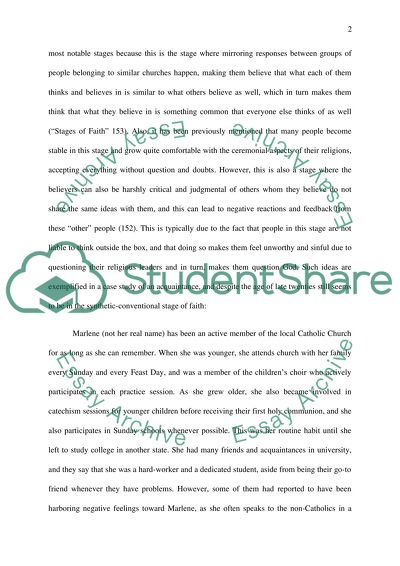Cite this document
(“James Fowlers Stages of Faith Assignment Example | Topics and Well Written Essays - 1250 words”, n.d.)
James Fowlers Stages of Faith Assignment Example | Topics and Well Written Essays - 1250 words. Retrieved from https://studentshare.org/religion-and-theology/1488125-james-fowlers-stages-of-faith
James Fowlers Stages of Faith Assignment Example | Topics and Well Written Essays - 1250 words. Retrieved from https://studentshare.org/religion-and-theology/1488125-james-fowlers-stages-of-faith
(James Fowlers Stages of Faith Assignment Example | Topics and Well Written Essays - 1250 Words)
James Fowlers Stages of Faith Assignment Example | Topics and Well Written Essays - 1250 Words. https://studentshare.org/religion-and-theology/1488125-james-fowlers-stages-of-faith.
James Fowlers Stages of Faith Assignment Example | Topics and Well Written Essays - 1250 Words. https://studentshare.org/religion-and-theology/1488125-james-fowlers-stages-of-faith.
“James Fowlers Stages of Faith Assignment Example | Topics and Well Written Essays - 1250 Words”, n.d. https://studentshare.org/religion-and-theology/1488125-james-fowlers-stages-of-faith.


